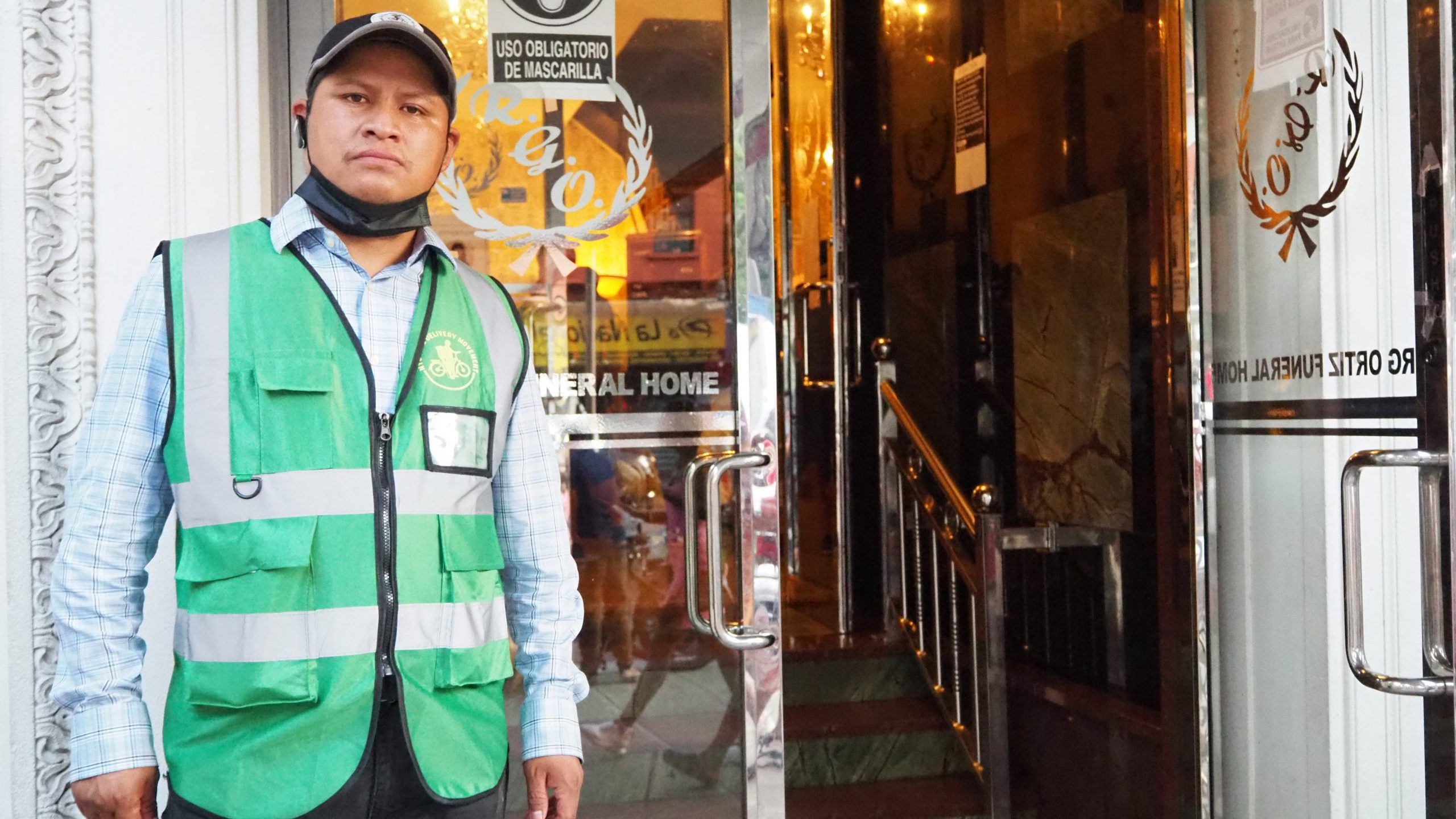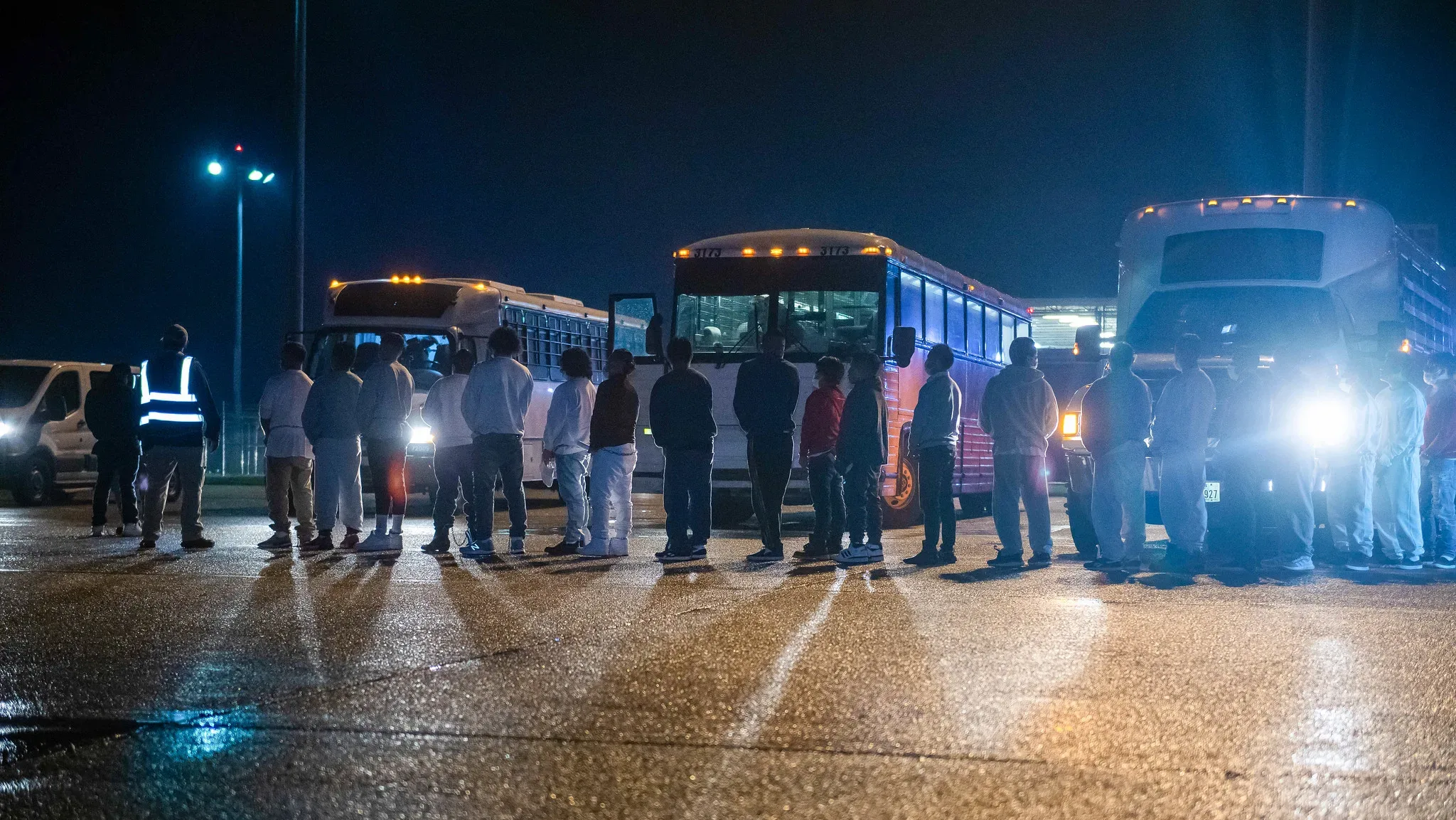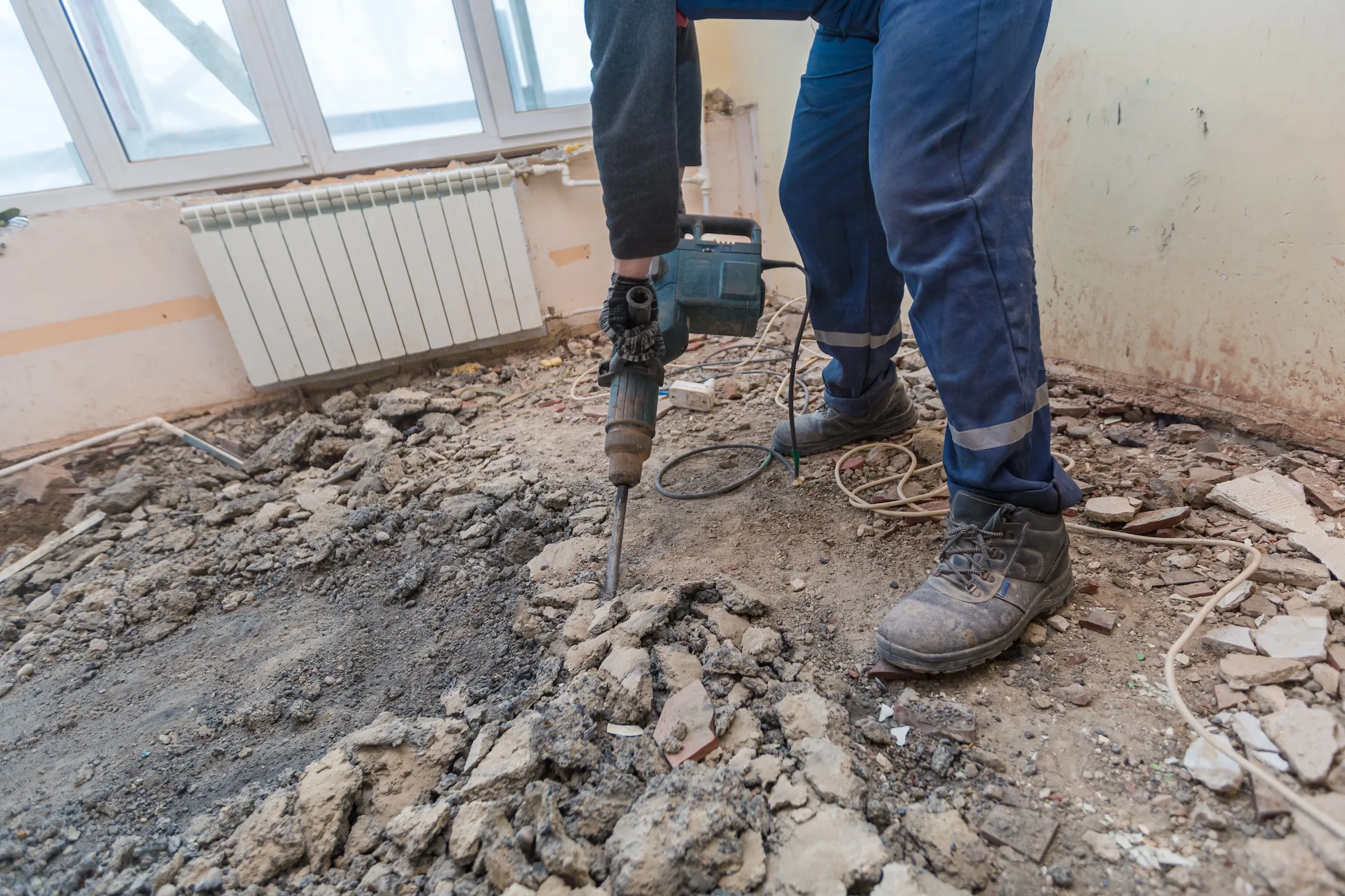When 24-year-old Emanuel Ponze woke up on a bright June morning, he was in a joyous mood. He had spent the night watching movies and drinking beer with his brothers and some friends, a well-deserved break from the 50 to 60-hour weeks he worked as a delivery worker for Doordash. When Ponze left his brother’s apartment in the Bronx to return home to his wife, he realized his moped was gone.
Like most delivery workers, Ponze had feared that his moped would one day be stolen, so he had installed a GPS tracker on the machine. He was able to track it to the local police precinct, the 41st. When he got there, the desk sergeant informed him that his moped was illegal because it wasn’t properly registered. The police confiscated the vehicle with no option of Ponze ever getting it back.
“I said okay but you don’t give me a receipt? If it wasn’t because of the GPS I wouldn’t know where the moped was,” he said.
Ponze’s experience is far from unique. Delivery workers say that the NYPD has been unfairly targeting them by seizing their mopeds without any recourse to ultimately recover them. Some mopeds are taken in the middle of the night or when delivery workers are in the process of making a delivery. Responding to the concerns of delivery workers, some New York lawmakers are hoping to change that.
In June, Mayor Adams and the NYPD announced the Summer 2022 Motorbikes Plan, which is aimed at cracking down on illegal dirt bikes and ATVs that have become a common sight on city streets. To commemorate the crackdown, the Mayor giddily oversaw a bulldozer crushing confiscated vehicles on a Brooklyn pier. Yet, many delivery workers, who are unaware that their mopeds are not legal, are reporting that they have been targeted amidst the crackdown.
Under New York City law, all mopeds require a driver’s license to operate and must be registered with the DMV. Only electric bikes are legal to drive without a driver’s license. The problem is that many delivery workers are unaware that they need a license to operate a moped, as many of the stores that sell electric bikes also sell gas-powered mopeds and don’t require proof of a driver’s license at purchase.
Many choose to purchase gas-powered mopeds instead of electric bikes because of widespread concern regarding the safety of e-bike lithium-ion batteries as they have been many fires associated with the batteries exploding. The New York City Fire Department reported that it had investigated nearly 70 e-bike battery-related fires.
Even if delivery workers did know it was illegal to ride an unlicensed moped, for many undocumented workers, getting a driver’s license could be a daunting task. Although undocumented immigrants can now get their drivers license in New York, the process is not always smooth as many undocumented immigrants have a difficult time securing all the necessary paperwork receiving a license requires.
Several delivery workers Documented spoke to said they either had their moped confiscated or it happened to people they knew. Social media groups that delivery workers use to share information with each other are filled with posts asking for help and videos showing the police confiscating mopeds. None were ever given prior warning about the law before their mopeds were seized.
The crackdown has weighed heavy on the minds of delivery workers across the five boroughs.
At Ortiz Funeral Home in East Harlem, members of the NYC Food Delivery Movement, a delivery worker lead mutual aid organization, organized the funeral of Tiburcio Castillo, one of four delivery workers killed last week. Sergio Solan, a delivery worker and President and cofounder of NYC Food Delivery Movement, an advocacy and mutual aid organization run by delivery workers, said that the crackdowns are adding even more stress on an already dangerous occupation. Solan says that the NYPD has been confiscating delivery workers’ mopeds on a daily basis, forcing many to find other jobs, yet he has seen dirt bike riders proliferate.
The New York City Public Advocate office has condemned the crackdown for unfairly targeting delivery workers, and called on the Mayor to adopt an education-based approach.
“Delivery workers rely on their vehicles to pay rent, buy food, and support their families,” Kashif Hussain, Deputy Public Advocate for Environmental Justice and Infrastructure, said. “We need a multilingual public education campaign to explain that mopeds need to be registered with the Department of Motor Vehicles, followed by a grace period, before impounding more vehicles.”
Alejandro Bazen was riding his unregistered moped with delivery orders when he was stopped by a group of police officers on 80th Street and Park Avenue in Manhattan. He was escorted off the street and his vehicle was placed next to a long line of other confiscated mopeds, collected throughout the day. With his limited English, Bazen was confused.
“I didn’t know it was illegal”, he said. “They explained it to me in English but there was nobody to translate. I had an idea of what they were saying but I didn’t fully understand.”
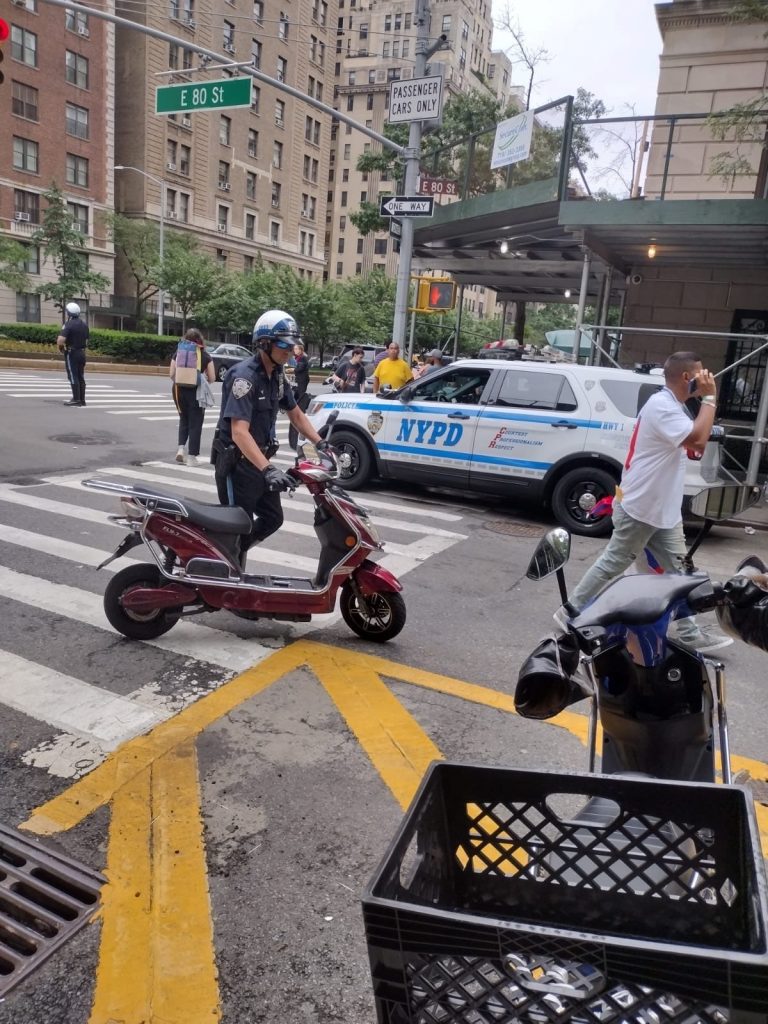
The police issued Bazen seven traffic tickets, ranging from $98 to $183, and his moped was confiscated without the police issuing any sort of documentation. He was forced to return the food he was delivering back to the restaurant and took the train back home to the Bronx. The officers told Bazen that if he registered his vehicle with the DMV, he could retrieve his moped. Yet, when he went to the DMV they told him that the paperwork he received when purchasing it was not valid. Unable to afford a new one, he purchased his second moped with a friend’s credit card for $2,000, and he is still making payments. Now, he fears that he won’t be able to earn enough to support his wife and child.
“They took the food from my family’s table,” he said.
Antonio Solis, a delivery worker from Queens and a member of Los Deliveristas Unidos, says that since June over 30 workers have told him that the NYPD had confiscated their mopeds. Many of them were taken in the middle of the night or during traffic stops. In many of the cases he’s seen, Solis says that the mopeds were legal.
Even if the drivers have documentation for the vehicle, “[the NYPD] are putting the mopeds on trucks and taking it away from them,” he said.
Ligia Guallpa, the Director of the Workers Justice Project, has also seen a significant increase in their members seeking help because their mopeds were confiscated by the police.
“There are mopeds that are not supposed to be on the streets and I know the NYPD has been targeting them,” she said. “When they are targeting those mopeds, sometimes the police are confused with which one is illegal and not illegal and they target all of them.”
Also part of the confusion is that many delivery workers are unaware that mopeds are illegal as they are regularly sold throughout the City alongside e-bikes.
When New York State legalized e-bikes in 2020 in an effort spearheaded by Senator Jessica Ramos, part of the law required the City to provide widespread education around what’s legal to ride and what isn’t. However, in light of the recent crackdowns, Astrid Aune, Director of Communications for Senator Jessica Ramos says that the City is unfairly penalizing delivery workers without fully implementing a public education campaign.
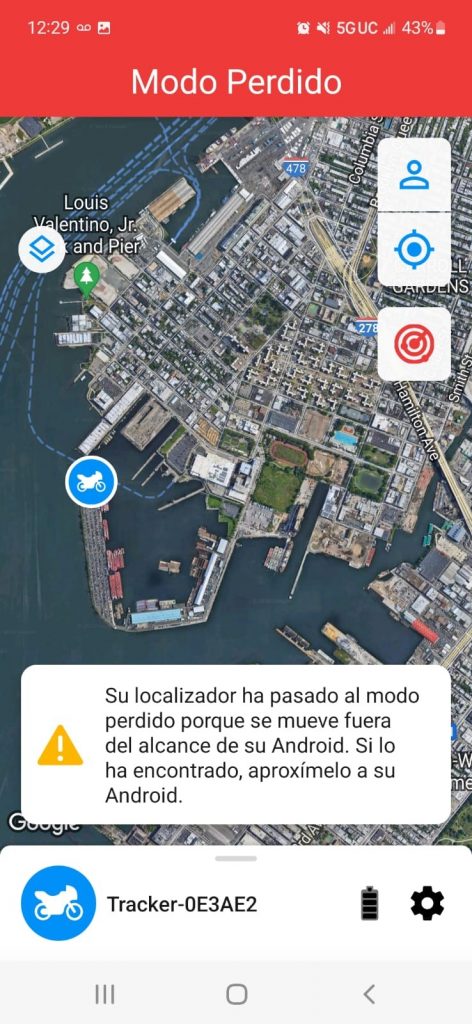
“It’s incumbent on the City to do some public education to ensure that it’s being properly implemented,” she said. “So it seems a little punitive to just confiscate when there has been little to know about public education on what the rules are. It’s people’s livelihoods.”
City Councilmen Christopher Marte agrees and vowed to look into possible legislative solutions that would not over penalize delivery workers who may be unaware of the laws or find it difficult to comply with them because of their immigration status.
“It is frustrating because I can see how someone’s only source of income could be altered for thinking they’re complying without education or a warning,” he said, “What I can do is to see if there is anything we can introduce to help these workers, whether if it’s dealers have to give clear notices their rights before purchasing a moped.”
Neither the NYPD nor the Mayor’s Office responded to requests for comments for this story.
“We are working closely with the NYPD and labor coalitions to ensure enforcement focuses on businesses for selling these illegal mopeds – and not delivery workers trying to make a living wage,” Vincent Barone, a DOT spokesperson said. “It is against the law to sell these mopeds in New York and we are reminding agency partners of this enforcement strategy during the dirt bike crackdown.”
As he watched the video of the mayor gleefully bulldozing mopeds and dirt bikes, Emanuel Ponze is uneasy about the language the mayor uses.
“They show mopeds they are taking from the workers and say it’s from the criminals, but most of them are from the delivery workers,” he said.
Almost a month has passed and Ponze still has not heard anything from the NYPD. Every so often he checks his GPS and sees that it’s still at 41st Precinct. He’s ready to accept that he no longer can ride a moped but wishes that he could have it returned to him so he can salvage whatever he can from it.
“Okay, it’s illegal but let me get it back so I can sell it to someone who can use it,” he said.
Meanwhile he has been in a constant hunt for a new job, but has not found any luck.
“Nobody is hiring right now. That’s one thing that’s hard.”
